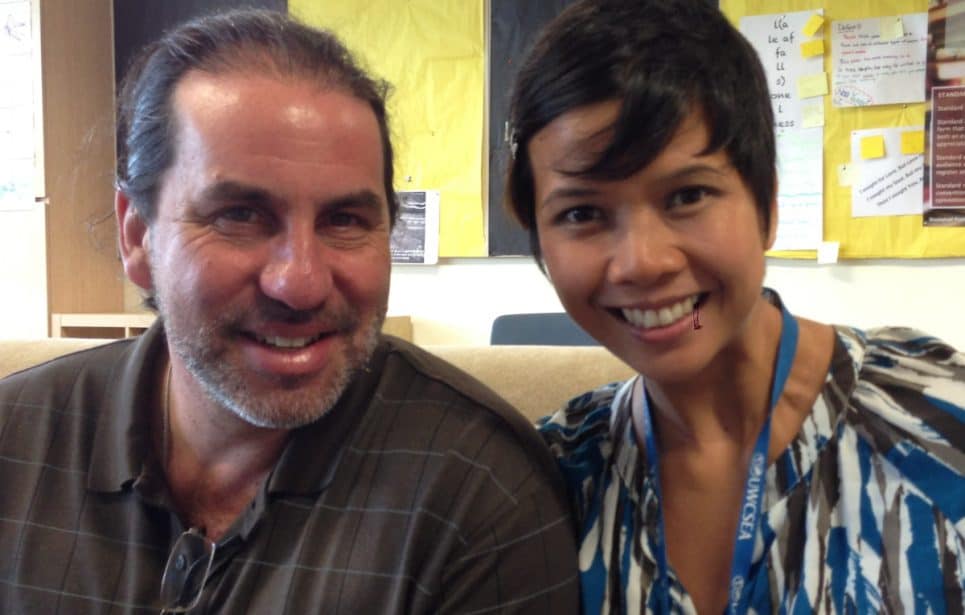People serving time
By M. P.

Venerable Thubten Chodron asked an incarcerated person to write about the people he has met and their attitudes towards imprisonment, their way of handling it, and their prognosis for the future. She also asked him to talk about how to relate to people in prison, because people on the outside have fear of and bias against them.
There are several types of people going to and coming from prison.
- Type A: Intentionally engaged in criminal conduct. Regrets being caught, not the conduct. Continues criminal conduct in prison. Plans criminal conduct after release. Engages in that conduct after release.
- Type B: Intentionally engaged in criminal conduct. Regrets being caught, not the conduct. Continues criminal conduct in prison. Plans to go straight after release. Falls into criminal conduct after release.
- Type C: Intentionally engaged in criminal conduct. Regrets being caught, not the conduct. Ceases criminal conduct in prison. Plans to go straight after release. Falls into criminal conduct after release.
- Type D: Intentionally engaged in criminal conduct. Regrets being caught, and the conduct. Ceases criminal conduct in prison. Plans to go straight after release. Lacks preparation, resumes criminal behavior.
- Type E: Intentionally engaged in criminal conduct. Regrets being caught, and the conduct. Ceases criminal conduct in prison. Plans and prepares to go straight after release. Through effort remains free from criminal conduct.
Types B, C, and D are the most likely to manipulate people in order to gain release or acquire things they need or want. Type A is too proud of his gangster identity, so he won’t “show weak” by even pretending he’s sorry and/or pretending to be rehabilitated even if it got him earlier release, money, or whatever he may want.Then there are those who didn’t realize they were breaking the law, who lacked any intention, who were ignorant of the law, were falsely accused, framed, or unknowingly placed into a conspiracy. Some of these would fall into the above types. Others would be:
- Type F: Had no intention to engage in criminal conduct. Regrets being caught and sees no reason for the imprisonment. Displays no criminal conduct in prison. Plans and prepares to live straight after release. Though effort remains free from criminal conduct.
- Type G: Had no intention to engage in criminal conduct. Regrets being caught and regrets causal actions which somehow contributed to the imprisonment. Displays no criminal conduct in prison. Plans and prepares to live straight after release. Though effort remains free from criminal conduct.
Relating to People in Prison
It’s unfair to stereotype people. Having a general image of all incarcerated people and using “prisoner” as a heavy label, is like saying ni**er, fag, etc. and thinking everyone in that group is the same. It prevents us from relating to that person as a human being with all their uniqueness. Sure, some people in prison are self-centered and dishonest, but then again so are some politicians and TV evangelists. Incarcerated people come from society. They are the people next door, the people you meet on the bus and in the store. You need to have the same ability to judge the character of people on the street as you do to judge the character of any particular person in prison. Whatever tools you use to prevent being victimized on the subway or in any relationship, you should use with incarcerated people.
Those who help people in prison need to check their own motives. If they see incarcerated people as poor fallen creatures who need their aid, or if women see that they are romantically attracted to people in prison because they are mysterious and exotic people, they should look at their own agendas and their own needs.
Incarcerated people who write very loving letters (falsely) and then get out of prison and are hurtful are the same people “out there” whom women meet and form attachments to and are hurt by after receiving a string of loving words. These people are everywhere—your class reunion, church, Dharma center, etc. If the Buddha told us that we shouldn’t believe everything he said without checking it, the same surely goes for the words of ordinary people, no matter who they are.
People who are addicted to drugs (in and out of prison) know how to charm people and make them feel sympathy for them, so they can get what they want. They’re no different than we were as children, knowing what to say at grandma’s so we can get cookies. Even people not in prison put on facades when applying for jobs or dating, etc. If others deceive us and we allow ourselves to be deceived at work, in church, in the Dharma center, why expect that people in prison would be different? You need to have the same skills for dealing with all these people, and that entails being aware of yourself and your motives.
When others are mistreated by people in prison, they should avoid generalizing it to all incarcerated people, just as if you’re mistreated by a boss, you don’t think that all bosses will be like that. If you put a big label “prisoner” on someone and make it very solid, it will prevent you from seeing the person as he is.
A relationship with a person in prison is like with anyone else. There is reciprocation. Whenever people get into relationships, they have to be aware of what they want out of the relationship. Each person is only half the equation and we need to be responsible for our half. If we are mindful of our own intentions and of the other person, we won’t be harmed.
A Dharma practitioner should think of people in prison when they meditate on equanimity or on all beings having been your mother. You need to be able to see each person as an individual and view them with kindness. You need to remember that what happens to you depends on your karma, not just the outside person.
Incarcerated people
Many incarcerated people from all over the United States correspond with Venerable Thubten Chodron and monastics from Sravasti Abbey. They offer great insights into how they are applying the Dharma and striving to be of benefit to themselves and others in even the most difficult of situations.


